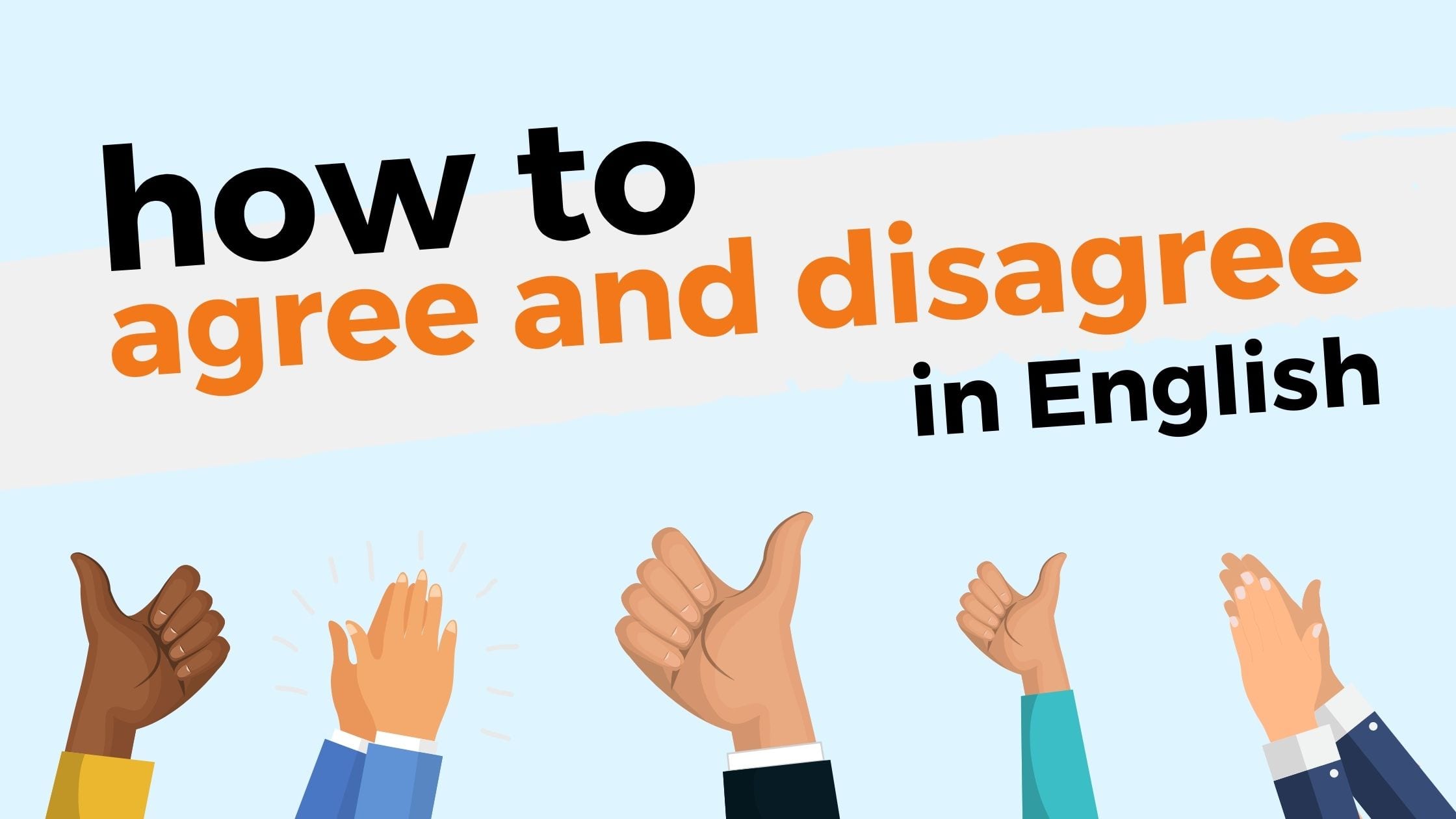20 Different Ways to Agree and Disagree in English
Do you agree with other people a lot during conversations? Or do you prefer to challenge them with different ideas? Whatever your personality, at some point during conversation, you will need to express agreement. The good news is that there are more ways to do that than by just saying yes or yeah. In this blog post, we explore a conversation between two coworkers and learn 20 different ways to agree and disagree in English. We will also explore the terms we use to partly agree in English.
Picture this situation…
You are talking to Linda, a colleague from work, during your lunch break. Let’s see if you two agree or disagree with most of the topics that were discussed in this conversation.

You: Hey, Linda.
Linda: Hey!
You: So, how has your week been?
Linda: Pretty good, I guess. I just feel like I don’t have much time for my hobbies.
You: Yeah, absolutely. I feel the same way.
Linda: I guess we are all working too much. Thank goodness it’s Friday!
You: I know, right? Well, I’m going away this weekend. I’m so happy about leaving town for a while.
Linda: That’s exciting! Where are you going?
You: I rented this little cottage by Lake Durham. Have you ever been there?
Linda: No, not really. I heard the view is amazing out there.
You: Yeah, that’s what I’ve heard too. I hope I don’t get disappointed.
Linda: Oh, I’m sure you will have a great time.
You: Are you doing anything special this weekend?
Linda: No, not really. I love staying home, ordering take-out and watching movies all weekend long.
You: Yeah, I love doing that, too. But I think some fresh air is good, too.
Linda: That’s for sure.
You: Well, I hope you have a great weekend!
Linda: You, too. By the way, how was your lunch? Do you like this restaurant? It’s my first time having lunch here.
You: Yeah, I like eating here. I come here twice a week. Did you like the food?
Linda: To be honest, I didn’t like it very much. I’ll give it another try on Monday, though.
You: Yeah, you should. Well, see you later!
Linda: See you!
So, do you and Linda agree on everything? Not really, right? Let’s go over some of the expressions used by them to agree or disagree with each other.
Phrases to agree in English
- Yeah, absolutely. I feel the same way.
- I know, right?
- That’s for sure.

Phrases to disagree in English
- Yeah, I love doing that, too. But I think some fresh air is good, too.
- To be honest, I didn’t like it very much.
These phrases are commonly used to agree and disagree in English. However, there are many more options you can choose from. Let’s have a look at them!
[convertkit form=2159134]
10 more ways to agree in English
You can agree by simply saying yes or yeah. However, as an English learner, you should know more phrases to express agreement in English. Check out 10 phrases and some examples to agree in English.
- Absolutely.
- Definitely.
- Exactly.
- You’re right.
- I couldn’t agree more.
- That’s true.
- That’s for sure.
- I agree (with you).
- I (completely/totally/really/absolutely) agree with you (on that).
- Yeah, I know.

You can also partly agree with something. You can do that by saying:
- I see what you mean, but…
- That idea is okay, but…
- I understand that, but…
[fusion_fusionslider name=”english-courses” full_height=”no” offset=”” hide_on_mobile=”small-visibility,medium-visibility,large-visibility” class=”” id=””][/fusion_fusionslider]
Bonus: how to disagree in English
We don’t always agree with others. When you don’t feel the same way as someone else does, you can disagree with them. There are several ways to do that, and some ways are more formal than others. Let’s take a look at common phrases we use to disagree in English.
- That’s not always true.
- To be honest, I don’t agree with that.
- I’m sorry, but…
- I’m afraid that….
- That might be true, but…
- Yes, but…
- I beg to differ.

The ability to agree, partially agree, and disagree in English is extremely important for any English learner. We hope this blog post is helpful to you. Let us know in the comment section if you can express agreement in English. See you next time!

